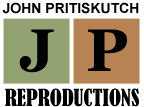
History of Berks County - Bethel Township
The following is reproduced from the 1876 Atlas of Berks County, Pennsylvania
Bethel township is situated in the north-western part of Berks county. Its boundaries are the Blue Mountains, separating it from the neighboring county of Schuylkill on the north; the townships of Upper Tulpehochen and Tulpehocken on the east and south ; and Lebanon county on the south and west. The northern portion of the township is somewhat mountainous. The soil is nearly all gravel and not very productive. By cultivation, some portions of it have been made to yield abundantly.
The township is said to derive its name from an establishment of Moravians on the Swatara river, called Bethel, or the "House of God."
There was much trouble experienced with the Indians during the earlier period of the settlement of the township. The Germans, who were the first settlers of the township, were kept in a continual state of alarm, and many lives were sacrificed by the cruel aborigines. Under the direction of Conrad Weiser, a fort was early erected in this township. So much fear was felt by the inhabitants that "the whole country thereabouts deserted their habitations and sent away all of their household goods."
In 1754 sixty-seven persons were returned to the County Commissioners as taxable. In 1810 there were 924 inhabitants in the township. In 1870 there were 2,285.
The South Mountain Railroad, when finished, will pass through Bethel. The roads in the township are numerous and in good condition. The main highway from Jonestown to Rehresburg passes through the southern part; that to Pine Grove crosses it on the east ; that to Sunbury centrally : and the State road to the west. The principal streams are the Little Swatara and Grosskill. At the present time there are five grist mills, seven saw mills, and one tannery in operation within the limits of the township. The principal village in the township is Millersburg, containing seventy-six houses, three hotels, and two stores. The Drinkers have two meeting houses, one in Frystown, and one north of Millersburg, near Round Top. The Lutherans and German Reformed also have a church in common.